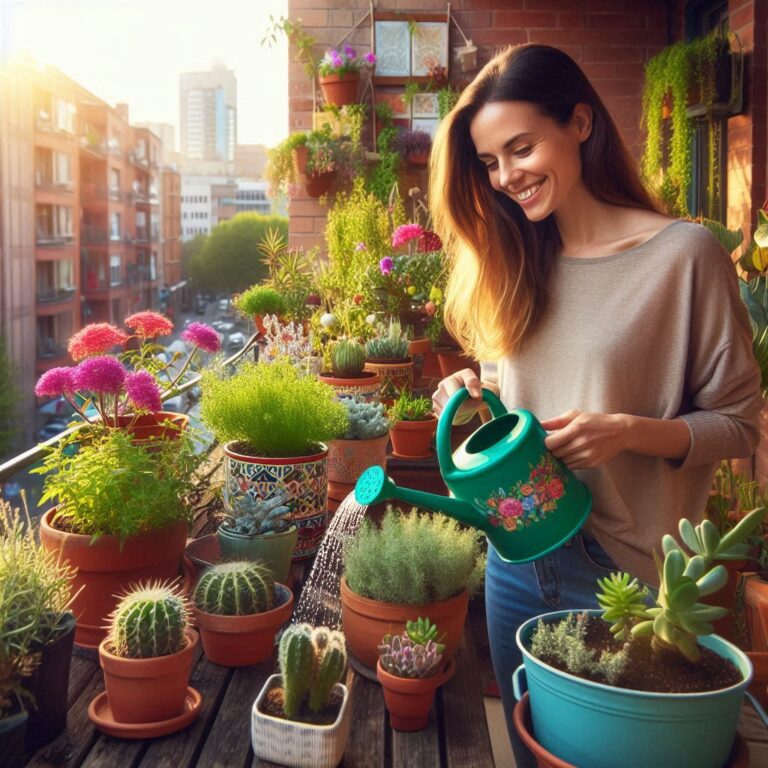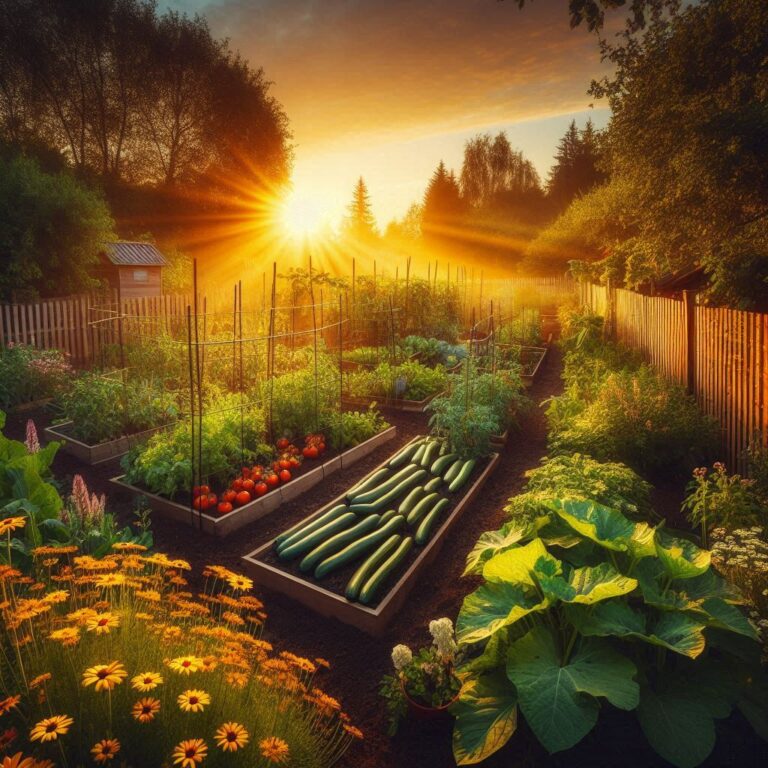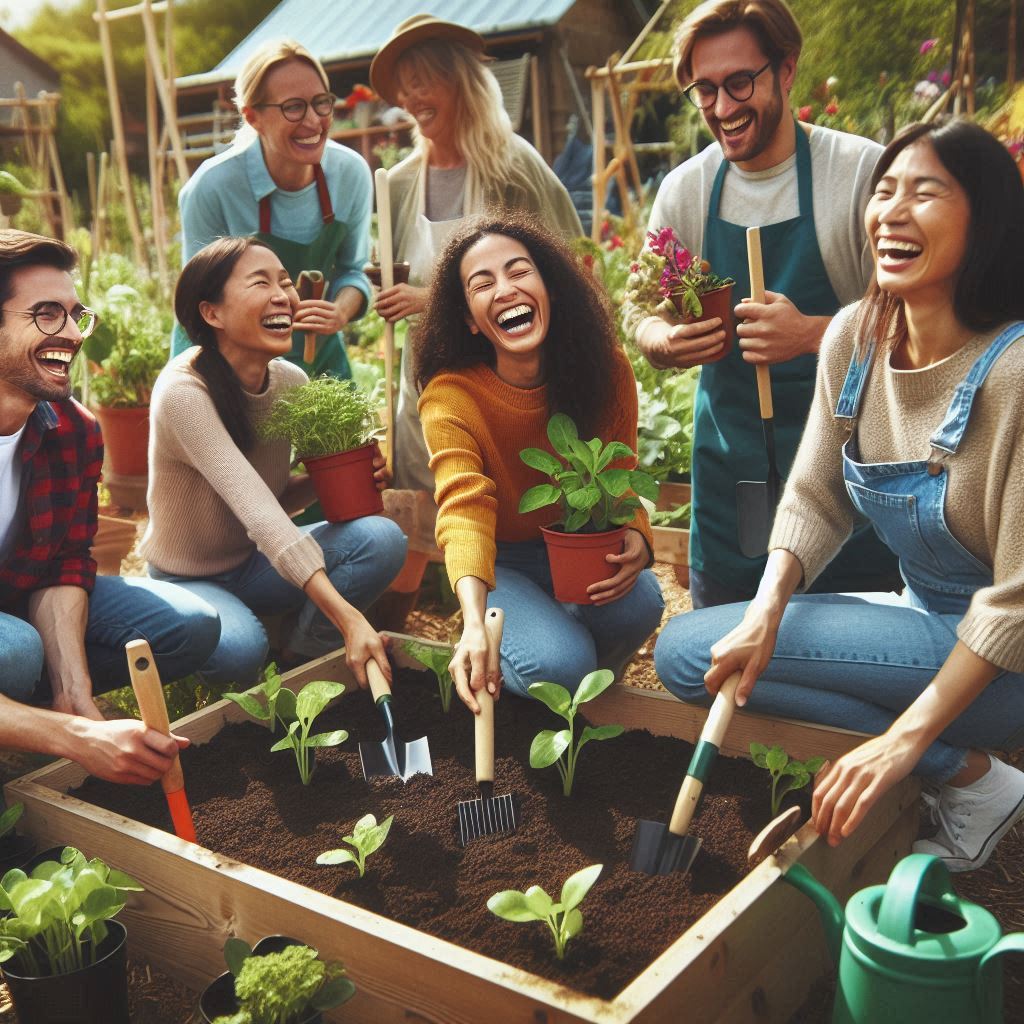Can Gardening Really Transform Your Stress Into Serenity?
Discover How Digging in the Dirt Reconnects You to Nature and Boosts Your Emotional Well-Being
A Post That Explores
Ever feel like life’s chaos is drowning out your peace? I did, until I stuck my hands in a pot of soil and planted my first herb garden. That simple act—digging, planting, nurturing—felt like a quiet rebellion against stress. Gardening isn’t just about growing plants; it’s about growing calm, connection, and joy. Whether you’re tending a backyard jungle or a few pots on a city balcony, gardening helps you reconnect with nature, reduce stress, and enhance emotional well-being. From lowering cortisol to sparking creativity, the science backs it up, and real stories from folks like Sarah and Jake bring it to life. Curious about how gardening reduces stress naturally or want small-space gardening ideas to start your own green escape? This post dives into the why, how, and what of gardening’s magic, with practical tips and heartfelt insights. Keep reading, and you’ll discover how a little dirt under your nails can transform your mind, mood, and soul—promise!
I remember the first time I planted a tiny basil seed in a pot on my cramped apartment balcony. I was stressed, overworked, and honestly a little skeptical that anything would grow. But weeks later, when those little green sprouts poked through the dirt, it felt like a small miracle. That moment sparked something in me—a connection to nature I didn’t know I was missing. Gardening, I’ve learned, isn’t just about growing plants. It’s about growing yourself, too.
In this post, we’re diving into how gardening helps connect you to nature, reduces stress, and enhances emotional well-being. Whether you’re tending to a sprawling backyard or a few pots on a windowsill, gardening has a way of grounding us, calming our minds, and boosting our mood. Let’s explore why this simple act is so powerful, with real-life stories, practical tips, and a sprinkle of science to back it up. Ready to get your hands dirty? Let’s dig in
Why Does Gardening Feel Like a Hug from Nature?
Ever wondered how gardening connects you to nature in a way that scrolling through Instagram never could? It’s not just about the plants—it’s about slowing down and tuning into the world around you. When you’re pulling weeds or watering your tomatoes, you’re not just “doing chores.” You’re syncing up with the rhythm of the earth. The chirping birds, the rustle of leaves, the smell of damp soil—it’s like nature’s whispering, “Hey, you’re part of this too.”
Take Sarah, a teacher from Portland, for example. She started gardening during the pandemic when her anxiety was through the roof. “I felt trapped inside, both physically and mentally,” she says. “But planting a small herb garden gave me something to focus on. Watching my rosemary grow felt like I was growing, too.” Sarah’s story isn’t unique. Studies show that spending time in nature—like gardening—can lower cortisol levels (that pesky stress hormone) by up to 15%. That’s science saying your backyard veggie patch is basically a natural stress reliever.
Local gardening benefits also play a big role here. If you’re in a place like Seattle or Austin, where community gardens are popping up everywhere, you’re not just connecting with nature—you’re connecting with neighbors, too. These shared spaces turn gardening into a social ritual, where you swap tips, share seedlings, and feel like you’re part of something bigger. It’s nature and community rolled into one soul-soothing package.

Can Gardening Really Reduce Stress? Let’s Break It Down
Let’s be real: life is hectic. Between work deadlines, family chaos, and the constant ping of notifications, it’s no wonder so many of us are searching for ways to reduce stress naturally. Enter gardening. It’s not just a hobby—it’s a legit stress-busting tool. But how does it work?
For starters, gardening is a form of mindfulness. When you’re pruning roses or checking your zucchini for pests, you’re not worrying about tomorrow’s to-do list. You’re in the moment. This kind of focus is similar to meditation, which has been shown to lower anxiety and improve mood. A 2017 study in the Journal of Health Psychology found that just 30 minutes of gardening per week can significantly reduce stress and boost emotional well-being. That’s less time than you’d spend binge-watching a single episode of your favorite show.
Then there’s the physical side. Gardening gets you moving—digging, planting, weeding—it’s a sneaky workout that releases endorphins, those feel-good chemicals in your brain. Plus, exposure to sunlight (even on cloudy days) boosts your vitamin D, which is linked to better mental health. It’s like nature’s multi-vitamin for your soul.
Let’s talk about Jake, a graphic designer from Chicago. He started gardening as a way to manage stress without medication. “I was skeptical at first,” he admits. “I thought gardening was for retirees or people with big yards. But I got a few pots for my patio, and now I’m hooked. When I’m out there, I forget about my inbox. It’s just me and my plants.” Jake’s experience highlights something key: you don’t need a huge space or fancy tools to reap the stress-relieving benefits of gardening. A few pots, some herbs, and a little patience are all it takes.
How Gardening Boosts Emotional Well-Being (And Why It Feels So Good)
If you’ve ever felt a rush of pride watching your sunflowers bloom or your peppers finally turn red, you know gardening does something to your heart. But why does it feel so darn good? The answer lies in how gardening enhances emotional well-being.
First, there’s the sense of accomplishment. Plants don’t grow overnight, and that slow process teaches patience and resilience. When your seedlings thrive (or even just survive), it’s a reminder that you’re capable of nurturing something. That’s powerful, especially if you’re feeling stuck or overwhelmed in other areas of life.
Gardening also fosters creativity. Deciding where to plant your lavender or how to arrange your succulents is like painting with nature. It’s a low-stakes way to express yourself, which can lift your mood and spark joy. Plus, the act of caring for living things—whether it’s a fern or a fruit tree—creates a sense of purpose. It’s like having a tiny, green family that depends on you (but doesn’t talk back).
Let’s not forget the emotional benefits of gardening at home. For people like Maria, a single mom in Miami, her small backyard garden is a sanctuary. “Life is loud,” she says. “But when I’m out there with my roses, it’s quiet. It’s my time to breathe.” Maria’s garden isn’t just a hobby—it’s her therapy, her escape, and her way of finding balance. Research backs this up: a 2020 study found that gardening can reduce symptoms of depression and improve overall emotional health, especially for those dealing with high-stress lifestyles.
Practical Tips for Starting Your Gardening Journey
Ready to experience the mental health benefits of gardening for yourself? You don’t need a green thumb or a big budget to get started. Here are some actionable tips to help you dive in, no matter where you live or how busy you are:
- Start Small: If you’re new to gardening, don’t go overboard with a massive plot. Try a few pots with easy-to-grow plants like basil, mint, or marigolds. They’re forgiving and give you quick wins.
- Choose Plants That Match Your Lifestyle: If you’re always on the go, opt for low-maintenance plants like succulents or lavender. Got more time? Tomatoes or zucchini can be fun and rewarding.
- Make It Local: Search for community gardening tips specific to your area. For example, if you’re in a dry climate like Phoenix, look up drought-tolerant plants. Local garden centers or online forums are goldmines for advice.
- Set a Routine: Gardening doesn’t have to be time-consuming. Even 10 minutes a day—watering, pruning, or just admiring your plants—can work wonders for your stress levels.
- Don’t Fear Failure: Plants die. It happens. Instead of getting discouraged, treat it as a learning experience. Every wilted leaf is a step toward becoming a better gardener.
- Join a Community: Look for local gardening groups or online communities (like Reddit’s r/gardening) to swap tips and stories. It’s a great way to stay motivated and feel connected.
Want to make it even more fun? Get creative with upcycled containers—think old teapots or mason jars—or experiment with vertical gardening if you’re short on space. The key is to make it yours.

Common Gardening Challenges (And How to Solve Them)
Let’s address the elephant in the room: gardening isn’t always smooth sailing. If you’re wondering how to overcome gardening challenges, here are some common hurdles and quick fixes:
- Problem: Pests are eating your plants.
Solution: Try natural remedies like neem oil or companion planting (e.g., marigolds deter bugs). Check local gardening blogs for pest control tips specific to your area. - Problem: Your plants keep dying.
Solution: Overwatering is often the culprit. Make sure your pots have drainage holes, and research your plant’s water needs. Apps like Planta can help. - Problem: You don’t have enough space.
Solution: Go vertical! Use wall planters or stackable pots. Small-space gardening ideas like these are perfect for apartments or tiny yards. - Problem: You’re too busy.
Solution: Focus on low-maintenance plants or set up a self-watering system. Even a single herb pot can give you that nature fix.
By tackling these issues head-on, you’ll feel more confident and keep the gardening vibes positive.
Wrapping It Up: Why Gardening Is Worth the Dirt Under Your Nails
Gardening is more than a hobby—it’s a way to reconnect with nature, tame stress, and boost your emotional well-being. Whether you’re planting a single succulent or transforming your backyard into a veggie paradise, every moment you spend with your plants is a moment of growth, both for them and for you. It’s messy, it’s imperfect, and sometimes your kale gets eaten by bugs. But that’s what makes it so human, so real.
So, what’s stopping you? Grab a pot, some soil, and a few seeds, and give it a try. You don’t need to be perfect—you just need to start. Who knows? You might just find that gardening becomes your new favorite way to unwind, connect, and feel alive. Got a gardening story or tip to share? Drop it in the comments—I’d love to hear how you’re growing your own slice of nature.
Happy planting!

